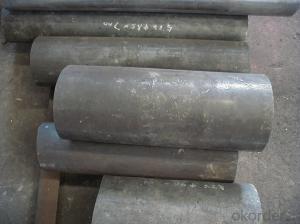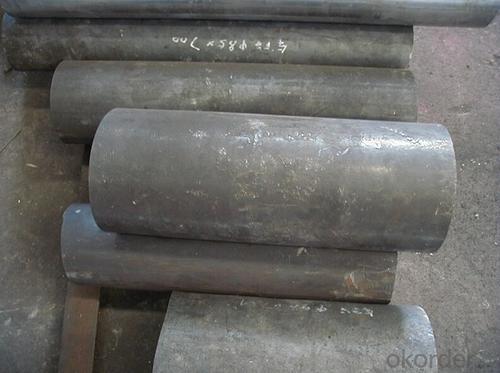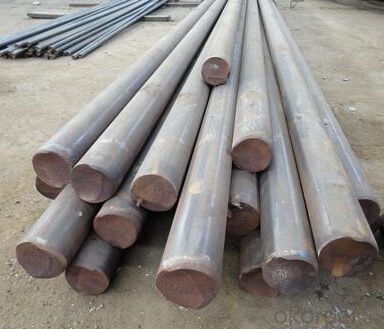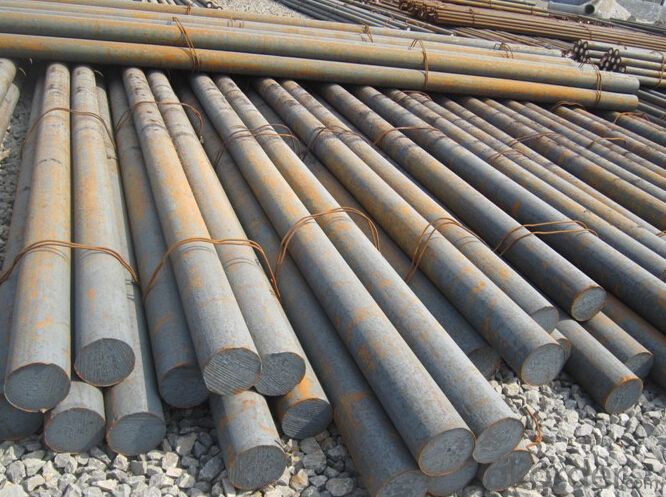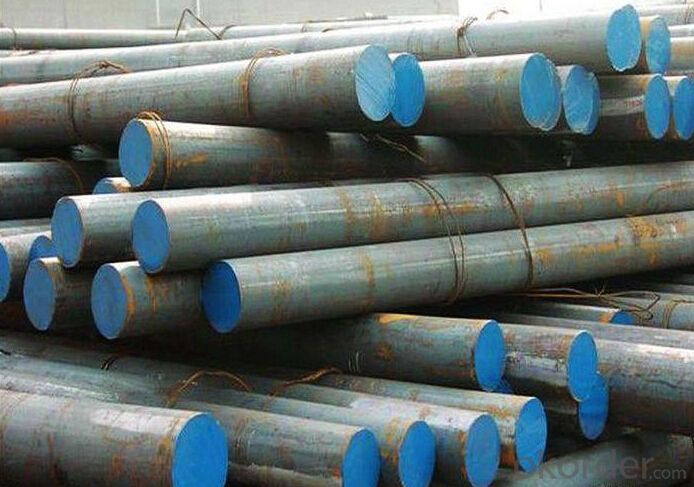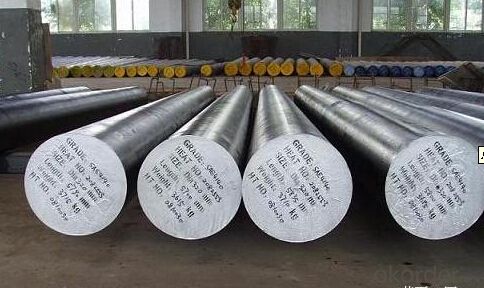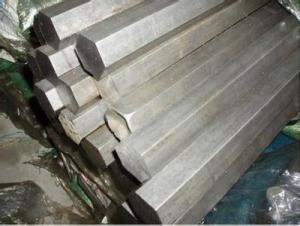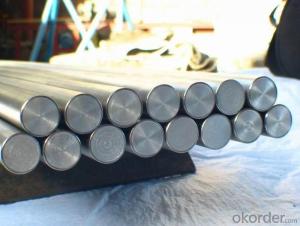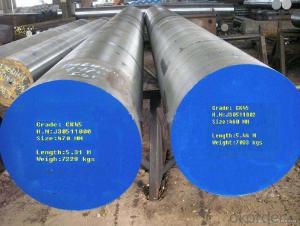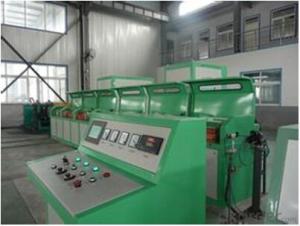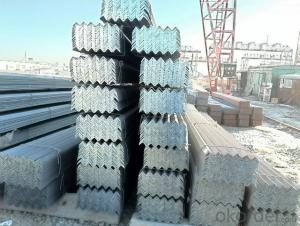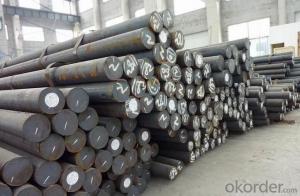Annealed Forged SKD11 Alloy Tool Steel Bar
- Loading Port:
- Qingdao
- Payment Terms:
- TT OR LC
- Min Order Qty:
- 5 m.t.
- Supply Capability:
- 100000 m.t./month
OKorder Service Pledge
Quality Product, Order Online Tracking, Timely Delivery
OKorder Financial Service
Credit Rating, Credit Services, Credit Purchasing
You Might Also Like
Specification
Type:
Carbon Steel,Spring Steel,Bearing Steel,Gear Steel,Deformed Steel,Stainless Steel,Alloy Steel
Shape:
Steel Coil,Steel Sheet,Steel Wire Rod,Steel Flat Bar,Steel Square Bar,Steel Angle,Steel Round Bar,Steel Billets
Technique:
Hot Rolled,Cold Rolled,Cold Drawn,ERW,Forged,Saw,Extruded,EFW,Spring
Surface Treatment:
Galvanized,Coated,Copper Coated,Color Coated,Oiled,Dry,Chromed Passivation,Polished,Bright,Black,PVDF Coated
Certification:
ISO,SGS,BV,IBR,RoHS,CE,API,BSI,UL
Thickness:
50-500mm
Width:
50-500mm
Length:
6-12m
Outer Diameter:
50-500mm
Net Weight:
100kg
Packaging:
seaworthy packaging
Annealed Forged SKD11 Alloy Tool Steel Bar
Detailed Information of Annealed Forged SKD11 Alloy Tool Steel Bar
| Name | Steel Round Bar |
| Shape | Round Bar/Square Bar/Flat Bar/Plate/Wire |
| Standard | GB/ASTM/SAE/AISI/DIN/JIS/EN/BS |
| Surface Treatment: | Black/Peeling/Polished/Machined |
| Delivery Condition: | Hot Rolled or Forged/Peeled or Black Surface |
| Test | SGS/UT 100% Elements Testing |
| Certificate: | ISO/Mill Certificate |
| Service: | 24 hours online service / |
| more than 20 years trading and manufacture | |
| Quality Assurance: | the third party inspection, such as SGS, BV, TUV…etc. is acceptable |
| Packaging Details: | Seaworthy Packaging or as per customer's packing instruction |
Product Overviews of Annealed Forged SKD11 Alloy Tool Steel Bar
| Product Name | Typical Grades | Diameter(mm) | Standard Adopted |
| Carbon Steel | 20 (1020/S20C/C22) | ||
| 40 (1040/S40C/C40) | Ø16-Ø300 | ||
| 45 (1045/S45C/C45) | |||
| Bearing Steel | GCr9 (51100/SUJ1) | ||
| GCr15 (52100/SUJ2/100Gr6) | Ø12-Ø250 | ||
| GCr9SiMn (A485-Gr.1/SUJ3) | GB/SAE/ | ||
| Cr-Mo Steel | 20Cr (5120/SCr420H/20Cr4) | JIS/DIN | |
| 40Cr (5140/SCr440/41Cr4) | Ø12-Ø250 | ||
| 42CrMo(4140/SCM440/42CrMo4) | |||
| Gear Steel | 20CrNiMo | ||
| 20CrMn(5115/SMnC420/20MnCr5) | Ø16-Ø600 | ||
| 20CrNiMo(8620/SNCM220/20CrMiMo2) |
Company Introduction of Annealed Forged SKD11 Alloy Tool Steel Bar
CNBM International Corporation is the most import and export platform of CNBM group(China National Building Material Group Corporation) ,which is a state-owned enterprise, ranked in 270th of Fortune Global 500 in 2015.
With its advantages, CNBM International are mainly concentrate on Cement, Glass, Iron and Steel, Ceramics industries and devotes herself for supplying high quality series of refractories as well as technical consultancies and logistics solution.
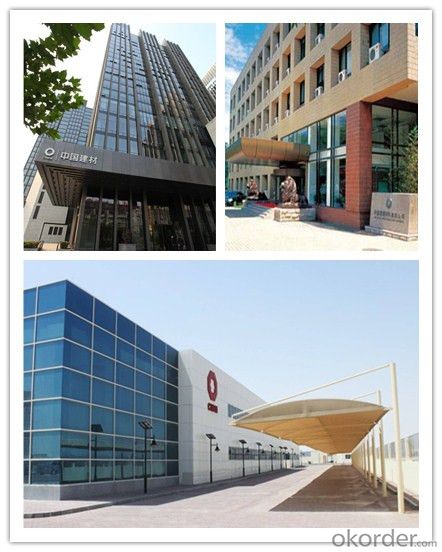
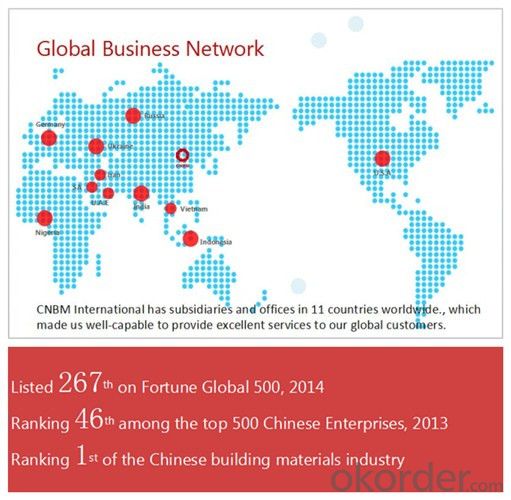
| After-sale service | l CNBM provides the services and support you need for every step of our cooperation. We’re the business partners you can trust; you can relax and get on with doing business. |
| l For any problem, please kindly contact us at any your convenient time, we’ll reply you in our first priority within 24 hours | |
| Advantages | l Industry experience over 20 years. |
| l Shipment of goods -More than 70 countries worldwide. | |
| l The most convenient transport and prompt delivery. | |
| l Competitive price with best service. | |
| l High technical production line with top quality products. | |
| l High reputation based on best quality products. | |
Packaging & Delivery of Annealed Forged SKD11 Alloy Tool Steel Bar
| Packaging Detail | Sea worthy packing /as per customer's packing instruction |
| Delivery Detail | 15 ~ 40 days after receiving the deposit |
Products Show
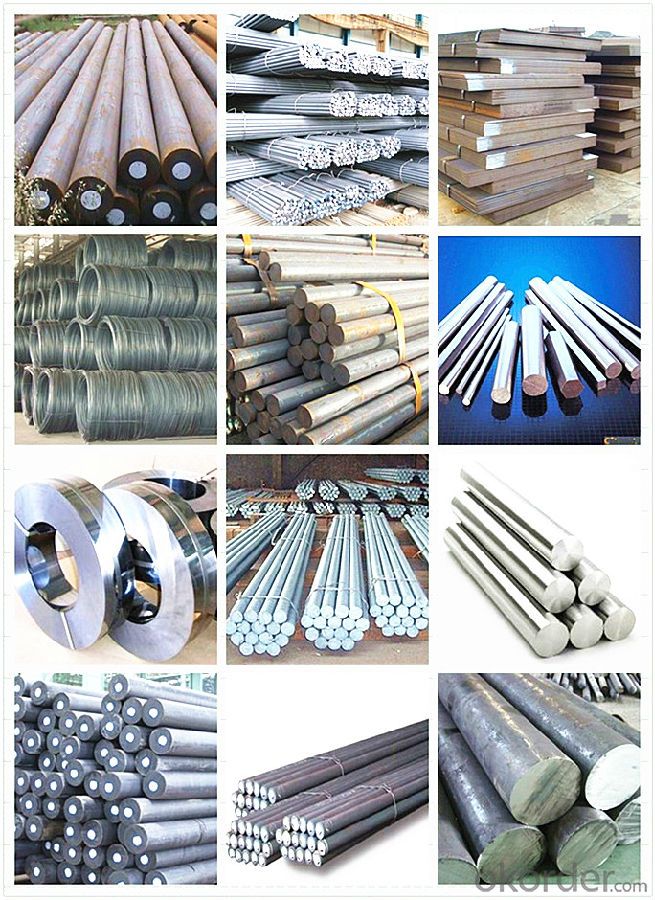
FAQ:
| Are you a trading company or manufacturer? | Manufacturer |
| What’s the MOQ? | 1000m2 |
| What’s your delivery time? | 15-20 days after downpayment received |
| Do you Accept OEM service? | Yes |
| what’s your delivery terms? | FOB/CFR/CIF |
| What's the Payment Terms? | 30% as deposit,70% before shipment by T/T |
| Western Union acceptable for small amount. | |
| L/C acceptable for large amount. | |
| Scrow ,Paybal,Alipay are also ok | |
| Why choose us? | Chose happens because of quality, then price, We can give you both. Additionally, we can also offer professional products inquiry, products knowledge train (for agents), smooth goods delivery, excellent customer solution proposals. |
| What's your available port of Shipment? | Main Port, China |
| What’s your featured services? | Our service formula: good quality+ good price+ good service=customer's trust |
| Where are your Market? | Covering more than 160 countries in the world |
- Q: How does special steel contribute to the electronics industry?
- Special steel contributes to the electronics industry by providing highly durable and corrosion-resistant materials for the manufacturing of various electronic components. It is used in the production of connectors, circuit boards, magnetic cores, and other critical parts of electronic devices. Its unique properties enhance the performance, reliability, and longevity of electronic products, ensuring efficient functioning and reducing the risk of failures.
- Q: What are the different methods for improving the fatigue strength of special steel?
- There are various ways to enhance the fatigue strength of special steel: 1. Heat treatment is a commonly used approach, involving processes like annealing, quenching, and tempering. These treatments refine the steel's microstructure, reduce impurities, and boost fatigue resistance. 2. Surface treatments, such as shot peening and nitriding, can also enhance fatigue strength. Shot peening bombards the steel surface with small metal particles, inducing compression stress that prevents crack formation and propagation. Nitriding diffuses nitrogen into the surface layer, creating a hard and wear-resistant nitride layer that improves fatigue resistance. 3. Alloying special steel with specific elements, like chromium, molybdenum, or vanadium, can significantly improve fatigue strength. These elements form carbides or nitrides, acting as barriers against crack propagation. 4. Applying protective surface coatings, like electroplating, hot-dip galvanizing, or physical vapor deposition (PVD), can enhance fatigue strength. These coatings act as barriers against environmental factors that may cause corrosion or surface damage, ultimately extending the steel's fatigue life. 5. Grain refinement can be achieved through processes like severe plastic deformation or equal channel angular pressing (ECAP). By refining the grain size, the steel's fatigue strength can be improved, as fine-grained steels have higher resistance to crack initiation and propagation. 6. Residual stress management plays a crucial role in enhancing fatigue strength. Techniques like stress relieving or shot peening can reduce tensile residual stresses, which are detrimental to fatigue resistance. It's important to consider specific requirements, the type of special steel, and the intended application when selecting the most suitable method for improving fatigue strength.
- Q: How is high-strength alloy steel used in the production of structural components?
- High-strength alloy steel is commonly used in the production of structural components due to its exceptional strength-to-weight ratio. It provides superior tensile strength and toughness, making it suitable for supporting heavy loads and withstanding high stress and impact. This steel is often used in the construction of buildings, bridges, and other infrastructure, as well as in the manufacturing of machinery and vehicles. Its application helps enhance structural integrity, durability, and safety while minimizing the weight and material requirements of these components.
- Q: How is duplex stainless steel used in the oil and gas industry?
- Duplex stainless steel is widely used in the oil and gas industry due to its exceptional corrosion resistance, high strength, and good weldability. It is commonly used in various applications including offshore platforms, subsea pipelines, oil and gas refineries, and chemical processing plants. The duplex stainless steel's ability to withstand harsh environments, resist corrosion from corrosive fluids, and perform under high pressure and temperature conditions makes it a preferred material for critical components and equipment in the oil and gas sector.
- Q: How does special steel contribute to energy efficiency?
- Special steel contributes to energy efficiency in several ways. Firstly, special steel is used in the construction of energy-efficient appliances and equipment, such as refrigerators, air conditioners, and turbines. The high strength and durability of special steel allow for more efficient operation and reduced energy consumption of these devices. Additionally, special steel is utilized in the manufacturing of energy-efficient vehicles, such as hybrid and electric cars. The lightweight yet strong properties of special steel enable the production of lighter vehicles that require less energy to propel, improving fuel efficiency and reducing emissions. Overall, special steel plays a crucial role in enhancing energy efficiency across various industries, contributing to a more sustainable and environmentally friendly future.
- Q: What are the applications of special steel in the automotive manufacturing process?
- Special steel is used in various applications within the automotive manufacturing process. It is commonly used for the production of engine components, such as crankshafts, camshafts, and connecting rods, due to its high strength, durability, and heat resistance. Special steel is also utilized in the manufacturing of suspension systems, steering components, and transmission parts, as it provides excellent fatigue resistance and wear properties. Additionally, special steel is employed for producing safety-related components like seat belt buckles and structural reinforcements, ensuring the overall safety and reliability of vehicles.
- Q: How does special steel perform in high-temperature oxidation resistance?
- Special steel is specifically engineered to possess exceptional resistance to oxidation at high temperatures. This kind of steel incorporates alloying components like chromium, aluminum, and silicon, which generate a protective layer of oxide on the surface when subjected to extreme heat. This oxide layer acts as a barrier, preventing further oxidation and corrosion of the steel. The capacity of special steel to withstand high-temperature oxidation is of utmost importance in scenarios where the material is exposed to intense heat and oxidation, for instance, in gas turbines, heat exchangers, and furnaces. The protective oxide layer aids in preserving the strength and integrity of the steel, even under rigorous conditions. Moreover, special steel also showcases remarkable resistance to creep at high temperatures. Creep refers to the gradual distortion of a material under a consistent load and elevated temperatures. The distinctive composition of special steel grants it the ability to resist creep deformation, thereby enhancing its overall performance and dependability in environments with high temperatures. In conclusion, special steel exhibits exceptional performance in terms of resistance to high-temperature oxidation due to its alloying elements and the formation of a protective oxide layer. Its capability to resist oxidation and maintain its structural integrity at elevated temperatures makes it the preferred choice for numerous industrial applications.
- Q: How does special steel perform in corrosive environments?
- The purpose of special steel is to excel in corrosive environments. This is achieved by incorporating a greater amount of alloying elements, like chromium, which generates a safeguarding oxide layer on the steel's surface. By doing so, the steel is shielded from direct contact with the corrosive elements present in the environment. In addition, special steel may contain other alloying elements such as molybdenum, nickel, or copper, which further enhance its ability to resist corrosion. These elements contribute to the steel's capacity to withstand various types of corrosion, including pitting, crevice corrosion, and stress corrosion cracking, which are commonly observed in corrosive environments. Moreover, special steel often undergoes treatments with diverse surface coatings or finishes that offer additional defense against corrosion. These coatings encompass materials like zinc, epoxy, or polymers, which establish an extra barrier between the steel and the corrosive elements. To summarize, special steel delivers exceptional performance in corrosive environments due to its abundant alloying elements, protective oxide layer, and supplementary surface coatings. It provides remarkable resistance against different forms of corrosion and guarantees the durability and dependability of structures or equipment operating in such environments.
- Q: Can special steel be used for making chemical processing equipment?
- Yes, special steel can be used for making chemical processing equipment. Special steels, such as stainless steel, are often preferred for such applications due to their excellent corrosion resistance, high temperature resistance, and durability. Chemical processing equipment often deals with corrosive substances or operates at high temperatures and pressures, making it essential to use materials that can withstand these conditions. Special steel alloys are specifically designed to have superior resistance to corrosion, including resistance to acids, alkalis, and other aggressive chemicals. Additionally, these steels can maintain their mechanical properties even at elevated temperatures, ensuring the integrity and safety of the equipment. Therefore, special steel is a suitable choice for making chemical processing equipment.
- Q: What are the different surface hardening grades of special steel?
- There are several surface hardening grades of special steel, including case-hardening steels such as 1018, 8620, and 8620H, which are commonly used for applications requiring a hard outer layer and a tough core. Another grade is nitriding steel, such as 4140, 4340, and 410, which are specifically designed for nitriding processes to improve wear resistance. Additionally, tool steels like D2, A2, and O1 are often used for surface hardening applications due to their high hardness and wear resistance properties. Overall, the choice of surface hardening grade depends on the specific requirements of the application.
Send your message to us
Annealed Forged SKD11 Alloy Tool Steel Bar
- Loading Port:
- Qingdao
- Payment Terms:
- TT OR LC
- Min Order Qty:
- 5 m.t.
- Supply Capability:
- 100000 m.t./month
OKorder Service Pledge
Quality Product, Order Online Tracking, Timely Delivery
OKorder Financial Service
Credit Rating, Credit Services, Credit Purchasing
Similar products
Hot products
Hot Searches
Related keywords
